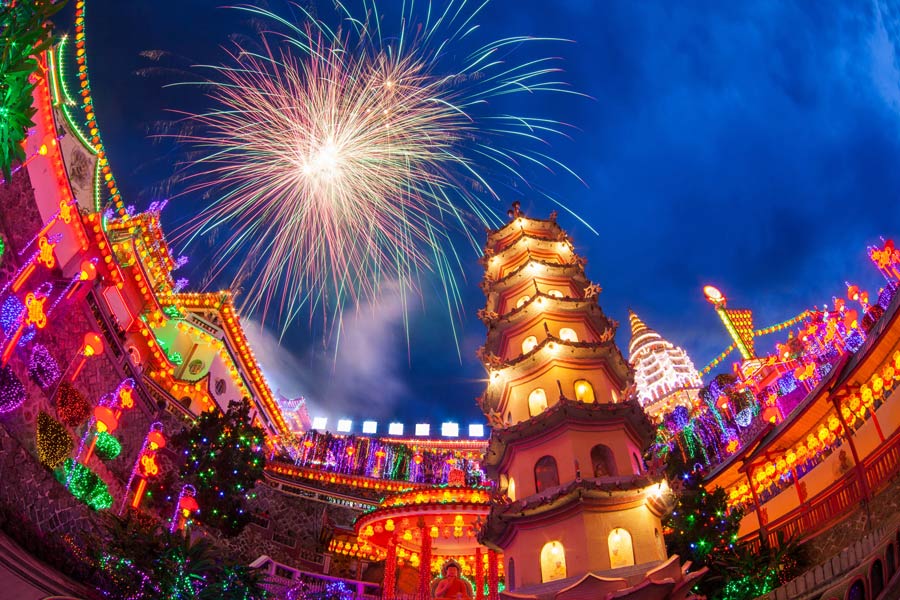The Significance Of New Year’s Day: A Cultural And Historical Exploration
The Significance of New Year’s Day: A Cultural and Historical Exploration
Related Articles: The Significance of New Year’s Day: A Cultural and Historical Exploration
Introduction
With enthusiasm, let’s navigate through the intriguing topic related to The Significance of New Year’s Day: A Cultural and Historical Exploration. Let’s weave interesting information and offer fresh perspectives to the readers.
Table of Content
The Significance of New Year’s Day: A Cultural and Historical Exploration

New Year’s Day, celebrated on January 1st, is a globally recognized holiday marking the beginning of a new calendar year. This occasion is steeped in history and tradition, holding diverse meanings and celebrations across cultures. Understanding the origins, cultural practices, and significance of New Year’s Day provides insight into the enduring human desire for renewal, hope, and a fresh start.
Historical Roots and Evolution:
The concept of a new year has been observed for millennia, with ancient civilizations marking the transition based on various astronomical events. The Babylonians, for instance, celebrated the new year in mid-March, coinciding with the spring equinox. The ancient Egyptians, on the other hand, used the rising of the star Sirius to mark their new year, which occurred in late July.
The Roman calendar, initially based on a lunar cycle, evolved to incorporate a solar year with 365 days. The Roman Emperor Julius Caesar, in 45 BCE, introduced the Julian calendar, shifting the new year to January 1st. This date, marking the beginning of the year for the Roman consuls, eventually became widely adopted throughout Europe.
The Gregorian calendar, introduced by Pope Gregory XIII in 1582, refined the Julian calendar, establishing a more accurate solar year. This calendar, still used today by most of the world, solidified January 1st as the universal New Year’s Day.
Cultural Celebrations and Traditions:
Across the globe, New Year’s Day is celebrated with a multitude of traditions and festivities.
-
Fireworks and Noisemaking: The practice of creating loud noises, from fireworks to banging pots and pans, is prevalent in many cultures. This is believed to ward off evil spirits and usher in good fortune for the coming year.
-
Feasting and Sharing: Food plays a central role in New Year’s celebrations. Many cultures have specific foods associated with good luck, prosperity, and longevity. These include round cakes symbolizing unity, lentils for wealth, and grapes for good fortune.
-
Resolutions and Reflections: The beginning of a new year offers a time for introspection and setting goals. Resolutions, promises to oneself for self-improvement or positive change, are a common tradition.
-
Festivals and Events: New Year’s Day is often marked by public festivals, parades, and concerts. These events provide a platform for community gathering, entertainment, and celebration.
The Significance of New Year’s Day:
Beyond the festivities and traditions, New Year’s Day holds a profound significance, representing:
-
Renewal and Rebirth: The transition from one year to the next symbolizes a fresh start, a chance to shed old habits, embrace new opportunities, and begin anew.
-
Hope and Optimism: New Year’s Day offers a sense of hope for the future, a time to envision positive outcomes and set aspirations for the year ahead.
-
Appreciation and Reflection: The occasion encourages reflection on the past year, acknowledging achievements, learning from mistakes, and expressing gratitude for blessings received.
-
Community and Connection: New Year’s celebrations often bring people together, fostering a sense of community and shared experience.
Frequently Asked Questions:
Q: What are some common New Year’s traditions around the world?
A: Traditions vary greatly across cultures. Some common examples include:
- Eating 12 grapes at midnight in Spain: Each grape represents a wish for the coming year.
- Burning effigies in Ecuador: This symbolizes letting go of negative experiences from the past.
- Making noise with fireworks and other instruments in China: This is believed to scare away bad luck.
- Wearing new underwear in Brazil: This signifies good fortune and prosperity.
Q: Why do people make New Year’s resolutions?
A: Resolutions are a way to set personal goals and strive for improvement. They can provide motivation for self-development, habit change, or pursuing new experiences.
Q: Is there a religious significance to New Year’s Day?
A: While New Year’s Day is not a religious holiday in itself, some religions have specific observances or celebrations associated with the new year. For example, the Jewish New Year, Rosh Hashanah, is celebrated in the fall.
Q: What are some tips for making the most of New Year’s Day?
A:
- Set realistic and achievable goals: Avoid overwhelming yourself with too many resolutions.
- Focus on personal growth: Choose goals that align with your values and aspirations.
- Celebrate with loved ones: Connect with family and friends, create lasting memories, and enjoy the festive atmosphere.
- Take time for reflection: Reflect on the past year, acknowledge successes, and learn from challenges.
- Embrace the new year with optimism and enthusiasm: Approach the year ahead with a positive outlook and a willingness to embrace new opportunities.
Conclusion:
New Year’s Day, a global celebration marking the beginning of a new year, holds immense cultural and historical significance. It is a time for renewal, hope, and reflection, offering an opportunity to embrace fresh starts, set goals, and celebrate the shared human experience. The diverse traditions and practices associated with New Year’s Day highlight the enduring human desire for optimism, growth, and connection, making it a cherished holiday celebrated worldwide.




:max_bytes(150000):strip_icc()/GettyImages-517433014-5c4a211a46e0fb00017be09b.jpg)


:max_bytes(150000):strip_icc()/Christopher-Columbus-58b9ca2c5f9b58af5ca6b758.jpg)
Closure
Thus, we hope this article has provided valuable insights into The Significance of New Year’s Day: A Cultural and Historical Exploration. We appreciate your attention to our article. See you in our next article!